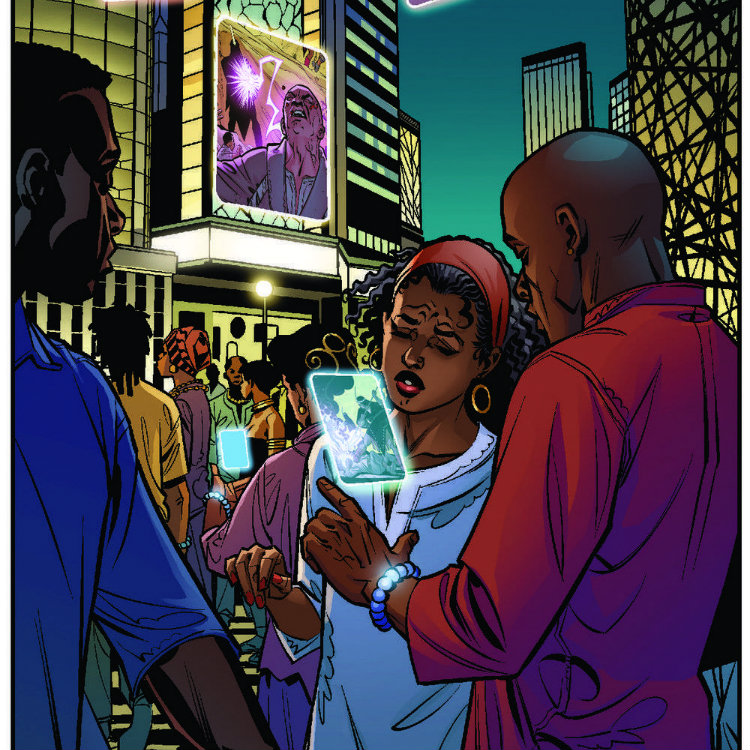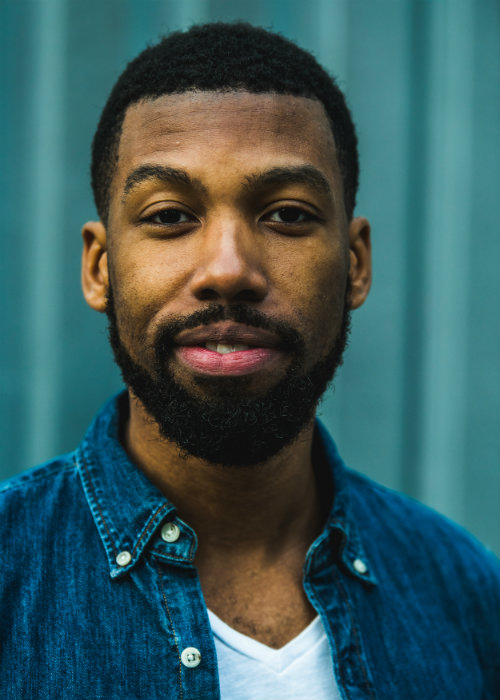
As a science and tech reporter, Xavier Harding ’12 would say that his favorite assignment to date focused on a comic book—Marvel’s Ta-Nehisi Coates-led reboot of Black Panther, to be precise.
There are a myriad of reasons why this assignment stands out to him above the countless others he’s worked on.
For starters, it was an assignment that he conceived of himself while working at Popular Science (PopSci), a print- and web-based media outlet that shares the latest scientific developments with the general public. After reading the comic, Harding was intrigued by the advanced technology portrayed in the fictional east African nation of Wakanda—technology that easily outpaces the already advanced multiverse filled with scientific-experiments-turned-superheroes like Iron Man, Captain America, and the Hulk.
It also served as an opportunity for him to combine his interests in the intersection of science, technology, and race. Black Panther was Marvel’s first black superhero, and artist Brian Stelfreeze draws upon African culture and history to influence the design of the innovative technology found throughout the series.
But if Harding is being perfectly honest with himself, it was a story that excited his inner comic book nerd.
“The whole time, I was giddy with nerd excitement,” Harding explained. “I contacted Marvel and within minutes they got back to me, saying that they were into the idea. I was talking with the lead artist less than a week later. When I think of all of the stories I’ve written, that’s the one I had the most fun writing.”

A scene from Marvel's Black Panther, depicting people using the kimoyo beads, the design of which was influenced by African culture.
Now, Harding is a tech and gaming reporter for Mic, a media company catering to millennials. The move finds him focusing on more of what he loves—a web-only media strategy—while still reporting on the subjects that interest him.
It’s a perfect position for the New York City-native who knew early on in his college career that he wanted to go into digital journalism. In fact, it was that awareness that drove the focus of his individualized studies major—journalism in the digital age—and served as the foundation for many of his career exploration opportunities—including internships with both LAPTOP Magazine and The Gettysburg Review.
But it was the opportunities to study abroad that originally attracted Harding to study at Gettysburg.
“I first heard of Gettysburg at a college fair. The rep mentioned that over 50% of students at that time studied abroad. That really interested me because I knew I wanted to study in a Spanish-speaking country, and clearly, the College does a good job of helping you get there.”

Harding ended up spending a semester on the Yucatan peninsula in Mérida, Mexico. He took classes that allowed him to explore his interests in journalism and media, lived with a local family,—the Los Pintos—and was immersed in both Mexican and Mayan culture.
On campus, Harding was a member of the improvisation group Shots in the Dark, participated in the Latin American Student Association, worked with WZBT radio station, regularly took advantage of activities and workshops provided by the Office of Multicultural Engagement, and played on a few intramural teams.
“Meeting so many different types of people at Gettysburg, and being able to spend a semester in Mexico, those are experiences that added up to something more than the sum of its parts,” Harding said. “I’m able to talk to and relate to many different types of people—it’s a skill that has gotten me far, and Gettysburg has definitely helped me do that.”
It’s helped him to achieve his career goal of working in digital media, with a resume that includes stints at IBT Media, as well as the aforementioned PopSci and Mic.
It’s also helped him to find ways to combine his interests in science and equality-related issues, too—beyond his Black Panther story.
“When I was working at PopSci, it really became clear to me that I need to cover science, technology, and gaming from a lens of race and inclusion,” Harding said. “Everyone uses these products, but if you don’t have people from all walks of life influencing the design, it won’t work for all of the people who are intended to use it.”
Now, he strives to highlight stories that elevate people, products, and perspectives that might not otherwise break into mainstream news—like his story on the CEO of Black Girls Code, one on visually-impaired gaming, and another on the depiction of black characters in video games.
It’s work that continues to excite him, and it is that excitement that serves as the foundation of career advice he’d offer to current students, too.
“When you know what career path you want to pursue, don’t be shy about it,” Harding said. “It’s cliché, but know what you want to be doing and be eager about it, be un-coolly adamant about it. The more you put yourself out there and the more you make a habit of doing great work, the more people will start to take notice. It’s taken me a while, but it’s served me well.”


